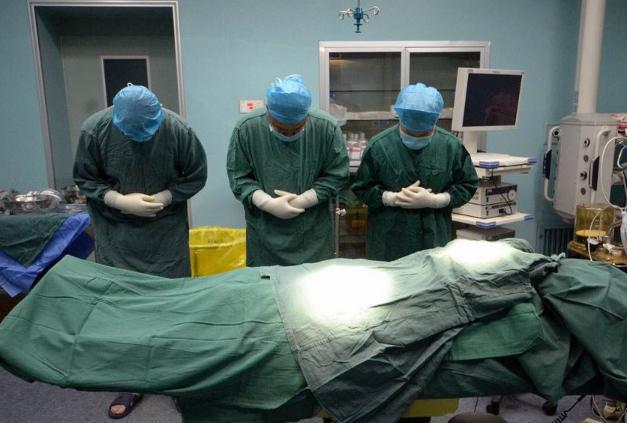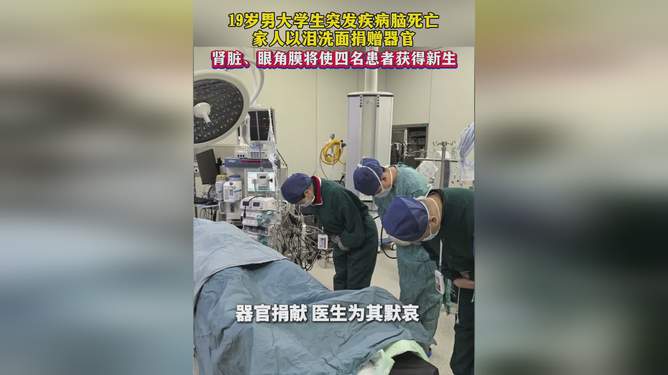一名年仅十九岁的男大学生因脑死亡无法挽回生命,然而他的家人却做出了无私的决定,捐赠他的器官以帮助其他需要的人。这一善举展现了生命的另一种延续方式,也体现了家人的大爱和无私奉献精神。此举不仅给予了他人新生,也让这位年轻的生命在离别后得以永恒。器官捐献是一项伟大的善举,值得社会的广泛推崇和尊重。
Title: Organ Donation from a 19-Year-Old Male College Student in the Wake of Brain Death: A Professional Perspective with Definitions
In today's world of medical advancements, the concept of organ donation after death has become an integral part of the societal discourse on compassion and empathy for fellow beings. A recent case involving a 19-year-old male college student who suffered from brain death highlights the importance of organ donation and the need for better understanding of related medical terms.
In this instance, the young student, at the prime of his life, was diagnosed with irreversible brain damage leading to his brain death. Despite the family's immense sorrow, they made a selfless decision to donate his organs. This act of kindness and generosity will help save the lives of others who are waiting for organ donations due to various illnesses or accidents.
What is Brain Death?
Brain death is a medical condition where all functions of the brain, including consciousness, sensation, movement, and breath, permanently cease. It is a irreversible state where there is no possibility of recovery or restoration of brain activity. This diagnosis is made through rigorous medical tests and procedures to ensure absolute certainty in the diagnosis.
What is Organ Donation?
Organ donation is the process of donating one or more organs from a person who has died to another person who needs them to survive. The donated organs are transplanted into the recipient, providing them with a new lease on life. This act of kindness helps save numerous lives each year and is a remarkable testament to human compassion and solidarity.
Professional Data Explanation: Definitions in Detail
In the context of this case, it's important to understand some professional data and definitions related to brain death and organ donation to gain a deeper insight into the matter.
1、Brain Death: As mentioned earlier, brain death refers to a state where all brain functions permanently stop. This diagnosis involves multiple tests to ensure there is no possibility of recovery. Once confirmed, brain death is an irreversible condition.
2、Organ Donation Process: The process involves several steps, including assessing the suitability of the organ for donation, harvesting the organ after the donor has died, preserving it for transportation, and finally, transplanting it into the recipient. Each step is meticulously followed to ensure the safety and efficacy of the donation process.
3、Family Decision-Making: In cases of organ donation, the decision is often made by the family members of the donor. They need to be informed about the entire process and its implications so that they can make an informed decision. The family's consent is crucial for the successful outcome of organ donations.
4、Ethical Considerations: Organ donations are governed by strict ethical guidelines that ensure the rights and welfare of both the donor and recipient are protected. The decision should be made voluntarily and without any coercion or exploitation involved.
5、Lifesaving Impact: The act of organ donation has an immense impact on saving lives. It provides a second chance at life to those who are waiting for organ donations due to various illnesses or accidents. The act itself is an embodiment of human kindness and solidarity towards fellow beings.
In conclusion, the case of a 19-year-old male college student who suffered from brain death and his family's decision to donate his organs highlights the importance of organ donations and the need for better understanding of related medical terms and definitions. The act itself is an embodiment of human kindness and compassion towards others, providing hope and a second chance at life to those who are waiting for organ donations.




 滇ICP备16008627号-1
滇ICP备16008627号-1 滇ICP备16008627号-1
滇ICP备16008627号-1